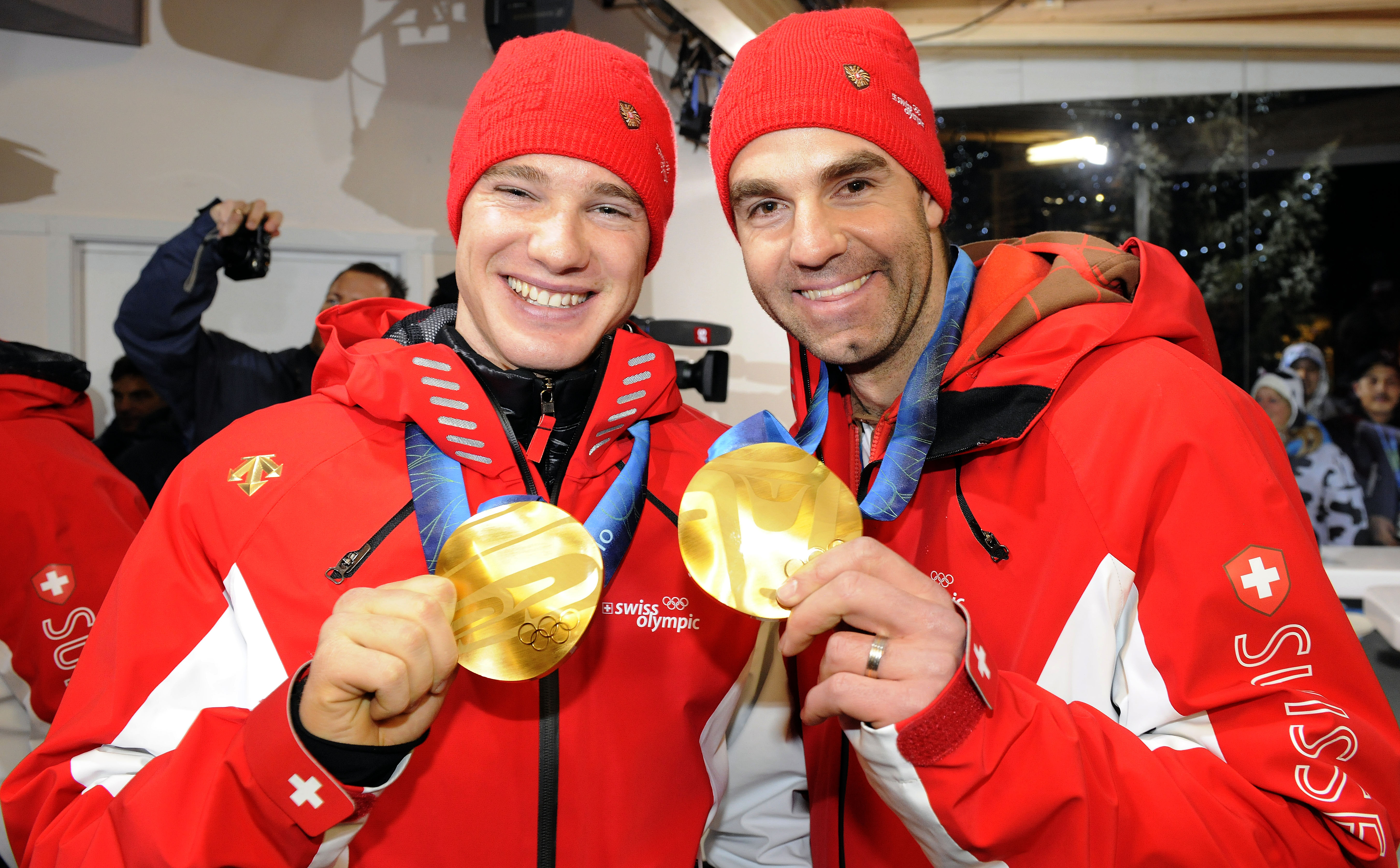Janka strikes giant slalom gold

Swiss skier Carlo Janka has won the Olympic gold medal in giant slalom, adding to the world title he won last year.
The 23-year-old led after the first run and won in a two-leg combined time of two minutes, 37.83 seconds.
It is Switzerland’s sixth gold, the most ever in an Olympic Games, and eighth medal in Vanvouver. The Swiss won five gold medals at Turin in 2006 and at the 1988 Games in Calgary.
Before Janka, the last Swiss man to win Olympic gold in the giant slalom was Max Julen in Sarajevo in 1984.
Kjetil Jansrud of Norway was 0.39 seconds back in second, jumping from 11th after the first run, and teammate Aksel Lund Svindal earned the bronze and matched Bode Miller’s three-medal tally at the Vancouver Games. Svindal won the super-G and took silver in downhill.
Miller skied out during his first run when pursuing a record fourth men’s alpine medal in a single Olympics, and Austria’s so-called “Wunderteam” was shut out of the men’s medals for the fourth straight race.
Austrians Marcel Hirscher, Romed Baumann and Benjamin Raich came fourth, fifth and sixth.
“It was something special today,” Janka said. “I was a little bit nervous between the runs. I had a great second run without mistakes.”
Switzerland now has two alpine golds, after Didier Défago – who did not race in the giant slalom – won the downhill last week.
In addition, Simon Ammann picked up two ski jumping golds, Dario Cologna won the men’s 15-kilometre freestyle cross-country and snowboarder Mike Schmid beat all opposition in the ski cross.
“We have not very many medals but we have a lot in gold,” Janka said.
There was disappointment though for the three other Swiss in action on Tuesday. Didier Cuche came in 14th, Sandro Viletta 15th and Marc Berthod 29th.
Iceman
Janka is known as the “Iceman” for his cool emotions, and his celebration was typically understated. He shook his ski poles low to the ground and then raised his arms above his head, allowing himself a smile of satisfaction.
Two days earlier, he had walked away angrily from the super-combined, where he finished fourth.
Janka arrived in Canada in second place in the overall World Cup standings and was predicted by many to be a breakout star. But he was a disappointing 11th in the downhill and eighth in the super-G – just 0.18 seconds behind bronze medallist Andrew Weibrecht of the United States – before missing a super-combi medal by 0.22.
Jansrud had never won a top-level race but continued his recent excellent run in giant slalom. He had top-three finishes three times in World Cup races last month.
Svindal was third after the first run but made a big mistake in the top half of his run, sitting back on his skis approaching a left-hand gate and losing speed.
Overcast
Svindal’s medal allowed him to tie former teammate Kjetil Andre Aamodt, who earned three medals – two silver, one bronze – on home snow at the 1994 Lillehammer Games. Aamodt also is the all-time Alpine leader with eight career Olympic medals.
Only two other men have three Alpine medals from the same games: Austria’s Toni Sailer swept all three races at the 1956 Cortina Games and French great Jean-Claude Killy did the same at the 1968 Grenoble Games.
The weather-affected alpine programme is now on track with the completion of the men’s giant slalom. The race was originally scheduled for Sunday but was bumped two days to accommodate the delayed men’s super-combined.
Whistler has enjoyed a weeklong dry spell, although racers skied in overcast conditions on Tuesday. Some rain and snow is forecast for Wednesday, when the women’s giant slalom is scheduled.
swissinfo.ch
The giant slalom is similar to the slalom, but there are fewer turns and they are wider and smoother.
Giant slalom races are contested in two runs on two separate courses, with the winner successfully finishing both courses with the lowest combined time.

In compliance with the JTI standards
More: SWI swissinfo.ch certified by the Journalism Trust Initiative













You can find an overview of ongoing debates with our journalists here . Please join us!
If you want to start a conversation about a topic raised in this article or want to report factual errors, email us at english@swissinfo.ch.